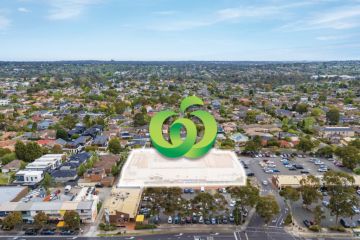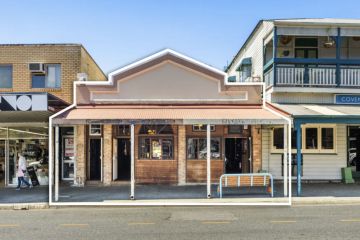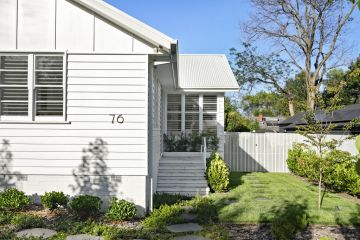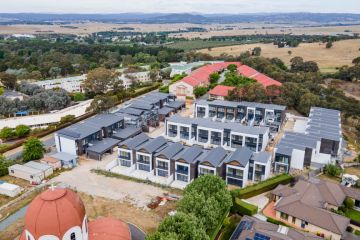'It’s a tantalising concept': Should you sell your house for bitcoins?
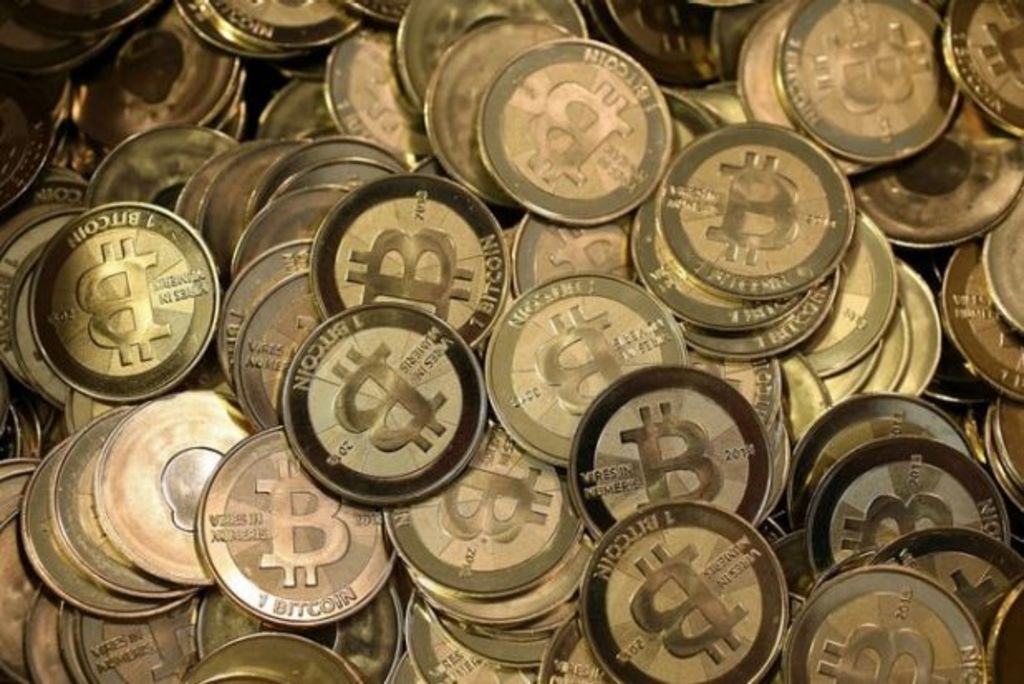
As the hype around cryptocurrency grows, and the price of bitcoin soars to new highs, it appears bitcoin may be on the way to becoming an accepted method of payment when purchasing property.
At the time of writing, there are at least five properties listed on Domain with vendors accepting payment in bitcoin, including a rainforest retreat in far north Queensland offered for 100 bitcoins, or $1.1 million.
Although it may seem like a marketing gimmick, these listings have raised the question of whether purchasing properties using bitcoin will ever become mainstream.
But with growing speculation and high volatility in cryptocurrency markets, as well as talk of a bitcoin bubble, is selling property for bitcoins a good way to get your hands on a large amount of cryptocurrency, or is it a recipe for disaster?
Why vendors accept payment in bitcoins
Part of the appeal in selling a house for bitcoins may be the pace at which prices are increasing. The price of one bitcoin has risen nearly tenfold since the start of the year to more than $US10,000 ($13,181) with increasing speculation pushing the price up.
For those who believe the value will rise, it’s easy to see the appeal of acquiring a large amount of bitcoins by selling property, because any gains on a large bitcoin holding would be substantial.
Jordan Williams, principal at Kollosche Prestige Agents, says it’s likely that anyone selling their home for bitcoins would already be a cryptocurrency investor. He is selling a waterfront mansion on the Gold Coast with an asking price of $5.15 million, or 500 bitcoins, for a client who works in the finance industry.
“The owner is happy to accept bitcoin as payment as he believes in that system,” he said, “Funnily enough we both are [cryptocurrency enthusiasts]. He’s a believer of bitcoin and I’m in ethereum”, he said, referring to a cryptocurrency rival to bitcoin.
Mr Williams expects that any buyer with a bitcoin balance big enough to buy a multimillion-dollar mansion may be an early adopter of the cryptocurrency.
“I think there would be some people quietly sitting on a lot of tokens. I know for a fact internationally there are people who invested several years ago, with a net worth of $100 million to $200 million now.”
- Related: Melbourne home owner willing to accept bitcoin payment
- Related: Why using cash could be the key to saving money
- Related: Experts offer their advice to first home buyers
Cheyenne Morrison, of LJ Hooker Cairns South, refers to these early adopters as the “hidden bitcoin billionaires”.
He is hoping to attract one of them for the 32-hectare rural property, about an hour south of Cairns, that he is marketing for a friend who is also a bitcoin enthusiast.
“I’m banking there’s somebody out there who would just love to say ‘I’m the first in Australia to buy a property via bitcoin’,” he said.
What are the risks?
Talk of a bubble is growing as bitcoin mania grips the world and everyday people look to invest in cryptocurrency. The total value of all bitcoins has reached as high as $US190 billion.
The popularity of bitcoin may also be creating problems in the marketplace, with spikes in traffic causing outages in online exchanges, leading to heavy selling and sudden crashes in the price.
Perhaps an even greater threat is the possibility that “whales” are waiting in the wings to offload their enormous bitcoin holdings at the peak, an action that has sent shockwaves through the market in the past. Some of these holdings may be worth hundreds of millions of dollars, and flooding the market with bitcoins could cause panic and mass sell-offs.
This volatility is the key risk to trading in bitcoins, according to AMP Capital chief economist Shane Oliver. “We’ve seen now five occasions this year where it’s fallen in value by 20 per cent or more, even though the broad trend is up,” he said.
“Its value is a bit of an unknown. It might go up in value, it could just as easily go up the other way.”
He said home buyers with a deposit in the bank may be tempted to convert their funds to bitcoins as a way of making money before a property purchase.
“You could use the exact same argument about the sharemarket. It should really be a separate decision,” he said.
“A lot of the reasoning I’m hearing about transacting property with bitcoin really comes back to it being a form of speculation.”
Mr Oliver cautioned against mixing bitcoin into property transactions, arguing that the risk was too great given the scale of the purchase.
“If you’ve got the cash, then why not stick to that rather than produce this extra level of uncertainty,” he said.
“Buying a property is a huge transaction, the biggest most people would undertake in their life. It would be a shame to turn it into a bad experience through speculation.”
How settlement works when buying with bitcoins
A major obstacle to buying a house using bitcoins is the need for the involvement of traditional institutions. Conveyancers or lawyers are required to facilitate the transfer of title deeds from one party to another.
According to Geoffrey Adam, of the Australian Institute of Conveyancers SA division, the volatility in bitcoin markets further complicates the settlement process, because it is likely that bitcoin prices would fluctuate in the period between the exchange of contracts and settlement.
“It’s a tantalising concept but there are all sorts of practical issues around it,” he said.
“The price for an Australian property would probably be agreed in Australian dollars, requiring a specified marketplace and a fixed time and place for the bitcoin calculation.”
Usually, funds are transferred by the purchaser into a trust account, and are then released to the vendor when the transfer of title has been registered with the state’s land registry.
It’s unlikely that any conveyancers in Australia yet have the capacity to hold bitcoins in trust, and transferring a large amount of bitcoins directly to a vendor is very risky, especially given the lack of cryptocurrency regulation.
“It would be possible for the purchaser to transfer bitcoin to the vendor ahead of time, but then the vendor could run off with the bitcoin and sell the property to someone else,” he said. “The potential for fraud is there.”
“There would need to be substantial provisions in the contract to address those issues. Without those provisions, I think it would be crazy to try to proceed.”
Property lawyer and Real Estate Escapes author Tim O’Dwyer says that for vendors with mortgages, bitcoins would need to be converted to Australian dollars to repay the loan.
“If you’ve got a mortgage to pay, I can guarantee the bank won’t accept bitcoins,” he said.
The same goes for stamp duty, which is calculated based on the purchase price or market value, whichever is greater, and payable in only Australian dollars.
Mr Adam said home owners should avoid involving bitcoin in property transactions. “I certainly wouldn’t recommend anyone to do it because it just complicates the process completely.”
We recommend
States
Capital Cities
Capital Cities - Rentals
Popular Areas
Allhomes
More
- © 2025, CoStar Group Inc.



